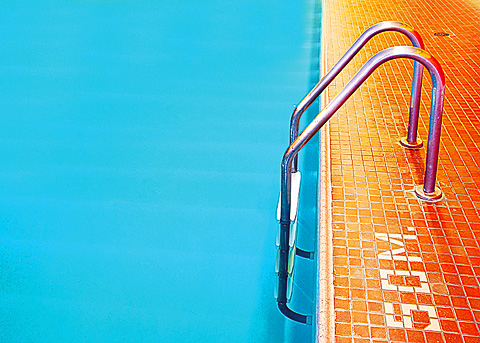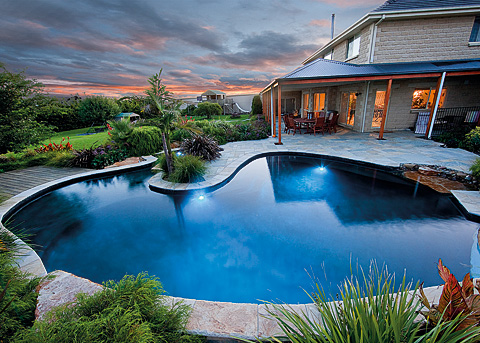Advocates Demand Regular Pool Fence Checks

14 July 2017
Hon Richard Wynne Minister for Planning
Level 16, 8 Nicholson Street
East Melbourne, VIC 3002
Dear Minister Wynne,
RE: Children drowning in home pools in Victoria and the release of the Regulatory Impact Statement - Building Regulations 2017
The Victorian Swimming Pool and Spa Safety Committee (VSPSSC) and Community Issue Based Working Group (CIBWG) was formed in 2010 to provide recommendations and strategies aimed at reducing the number of drowning deaths and injury of young children in home swimming pools.
In 2012, the CIBWG provided a ‘Summary of the Victorian Situation’ report to Government and Industry stakeholders. The CIBWG included Life Saving Victoria (LSV), Kidsafe, the Victorian Building Commission, Swimming Pool and Spa Association of Victoria (SPASA), Australian Institute of Building Surveyors, Municipal Association Victoria (MAV), Victorian Municipal Building Surveyors Group and Consumer Affairs Victoria (CAV). The CIBWG now also includes the Real Estate Institute of Victoria (REIV), Landscaping Victoria, Coroners Prevention Unit (CPU), and State Government’s Building Advisory Committee (BAC). Since 2012, the Committee and the individual organisations have made multiple submissions in an attempt to reduce the rate of childhood injury and fatality.
The charter of the VSPSSC is to address the issues in the Victorian Water Safety Strategy 2016-2020. Namely, to Reduce Drowning Deaths in Children aged 0-14 (pages 14-15):
Goal Key Objective
1a. Reduce Drowning deaths in Children Aged 0-4 i. Strengthen child drowning prevention knowledge, programs and water safety awareness campaigns that raise awareness of the importance of adult supervision, pool barriers, water familiarisation and CPR. iii. Advocate for local and state government to include mandatory home pool fence monitoring and maintenance compliance of four sided pool fencing as part of state building regulations.
The CIBWG recently reconvened post the release of the ‘Regulatory Impact Statement- Building Regulations 2017’, and determined:
The collective of subject matter experts of the home pool and spa industry unanimously agree that the solution to managing the safety - and preventing injury and death of Victorian children in and around home pools and spas - is to legislate Mandatory Barrier Inspections at sale or lease of a property, or every three years, for all residential properties in Victoria.
The empirical evidence demonstrates that Mandatory Barrier Inspections will reduce toddler fatalities. When Mandatory Barrier Inspections are legislated in Victoria, we will start to see a reduction in the rate of injury and loss of life.
1. The CIBWG is committed to the recommendation that there needs to be a mandatory certificate of compliance for home pool and spa safety barriers issued every 3 years, and prior to sale or lease of a property, conducted by independent inspectors. A self-assessment tool should be utilised by the owner or property manager on an annual basis between the mandatory inspections.
To achieve this outcome requires a compulsory pool and spa register, a single inspection tool and a management database to ensure consistency of inspections undertaken along with annual reporting. The database to be held by local councils, as is already the case for matters such as building permits, food premises, rooming houses and pet registration.
Registering a home swimming pool or spa must be compulsory and an appropriate period of time allowed to achieve compliance. Simultaneously there needs to be comprehensive communications around the requirements and consequences, to raise knowledge and awareness of pool owners. An amnesty period of 12 months should be considered once council databases have been established to record registrations and appropriate notification sent out with rate notices and reminders. Property owners should be responsible for maintaining the barrier and the occupier responsible for effective operation. These requirements must be included in the Contract of Sale and rental agreements. The requirements of the owner need to be included in the Residential Tenancies Act. The requirements of the occupier also need to be included, so that property managers/landlords will be able to issue a breach of duty notice.
Once we know the home pool and spa locations, then management of the inspection process, annual reporting and targeted education programs take effect.
Mandatory barrier inspections will require the introduction of a Swimming Pool and Spa Safety Inspectors course to reduce the reliance of undertaking inspections which is currently limited to registered, i) building surveyors and ii) building inspectors. It is proposed that a course similar to the Swimming Pool Safety Inspectors course (31005QLD) is developed and delivered in Victoria. Following the development of the course by Royal Lifesaving Society - Australia and Royal Life Saving Society Queensland, the course is now delivered and accepted in NSW and SA.
Registration and qualifications of inspectors would be subject to regulation by the Victorian Building Authority. Inspectors will issue certificates of compliance or non-compliance which will be forwarded to local councils.
The outcome of the inspection with the self-assessment tool would be attached to the record held by council. Owners would be required to lodge annual maintenance/ compliance reports with council and pay an appropriate management fee to cover council administration costs. Infringement penalties should apply for noncompliance.
2. The CIBWG is committed to the recommendation that there needs to be targeted, ongoing education for home pool owners promoting pool safety, supervision and owner responsibility for maintenance. Resources need to be developed and updated to ensure a consistent message. A targeted action plan for dissemination of resources should be developed once a database of pools has been established. Communications should be State Government-led, as they are in other drowning and health related prevention strategies. CPR signage must be made compulsory in order to reduce the consequences once an immersion incident has taken place.
3. The CIBWG is committed to the recommendation that there needs to be a notification system following a fatal or non-fatal immersion incident of a child under 5 years in a home pool or spa.
Notification to go to the following groups:
i) Local government where incident occurs to conduct a follow-up compliance inspection
ii) Department of Human Services (DHS) to follow-up any issues of child neglect.
iii) Victorian Building Authority as the Regulatory body
iv) Life Saving Victoria as the peak water safety agency in Victoria and author of the Victorian Drowning Report, to ensure accurate reporting of drowning incidents
4. The CIBWG is committed to the recommendation that data should be collected, collated and reported on pool safety compliance. The number of home pool inspections conducted and the level of compliance should be reported on an annual basis.
Currently there is a lack of accurate data collected and collated on the number of home pool inspections and the level of compliance within Victorian local government areas.
Collectively, all industry stakeholders necessitate that Mandatory Barrier Inspections be legislated in Victoria immediately.
Yours sincerely,




